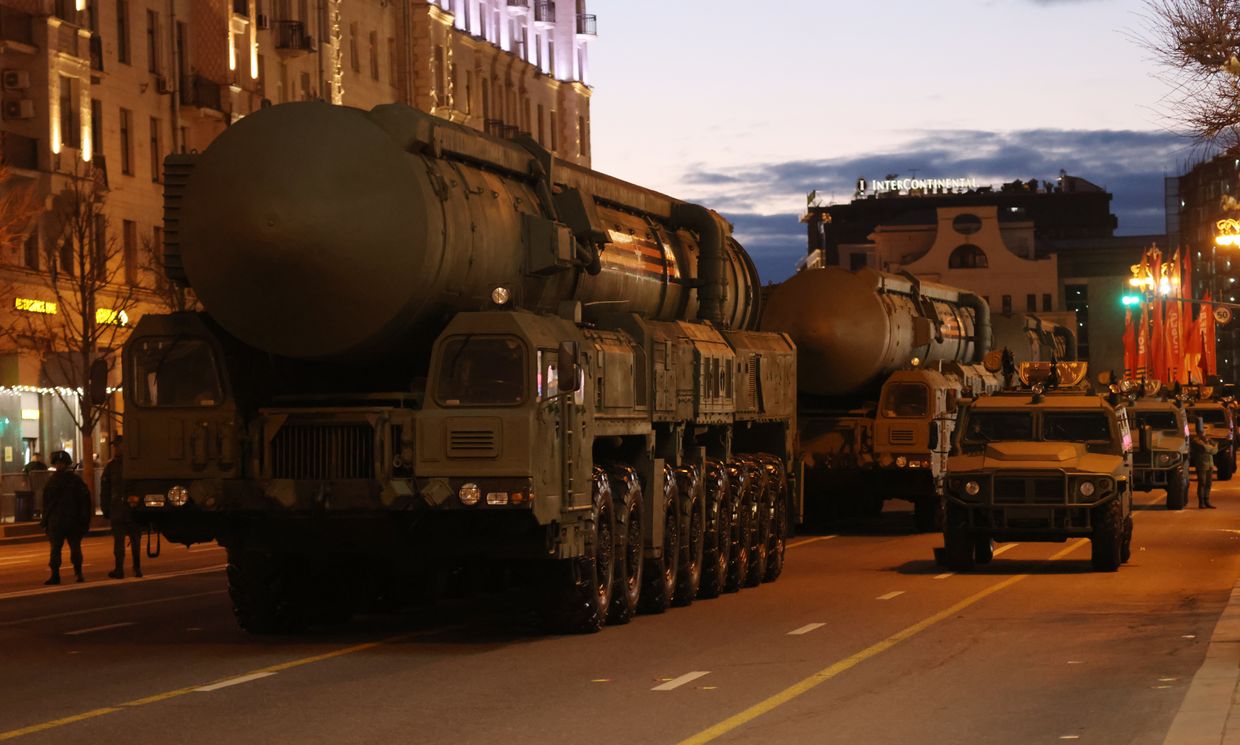Putin suggests changes to Russia's nuclear doctrine
Russian President Vladimir Putin proposed a series of changes to Russia's nuclear doctrine on Sept.
25 during a Security Council meeting on nuclear deterrence, Russia's state-owned outlet Ria Novosti reported. Throughout the war, the Kremlin has repeatedly laid down red lines, which it has said could provoke a nuclear response if crossed. Deputy Foreign Minister Sergei Ryabkov said on Sep.
1 that Russia will change its nuclear doctrine based on an analysis of recent conflicts and the West's "escalation course." Work on drafting the doctrinal changes is at "an advanced stage," Ryabkov reported at the time without revealing any details as to the changes being introduced. "An aggression by a non-nuclear state with the participation of a nuclear state is proposed to be considered as their joint attack on Russia," Putin said during the Security Council meeting on Sept.
25. Moscow also retains the right to use nuclear weapons in the event of an attack, including if the enemy, using conventional weapons, poses a critical threat to Russia and Belarus, Putin added.
The Russian president said these changes were made in agreement with Belarusian dictator Alexander Lukashenko. According to the new suggestions, Russia may consider the use of nuclear weapons after receiving information about a massive launch of missiles or drones crossing its state border. Putin said that the nuclear "triad" remains the most important guarantee of Russia's and its citizens' security.
The new draft nuclear doctrine also contains an expanded list of countries and military alliances, as well as a list of military threats, he added. The Russian government did not specify a date when the proposals for changes to the nuclear doctrine would come into force. The head of the Presidential Office, Andriy Yermak, responded to Putin's statements by saying that "Russia has nothing else but nuclear blackmail, no other tools to intimidate the world."
"These tools will not work," he added. Putin approved a nuclear doctrine in 2020, which listed for the first time the threats against which nuclear weapons could be deployed. Among other provisions, it states that Russia reserves the right to use nuclear weapons if nuclear or other weapons of mass destruction are used against it or its allies.
Russian forces can also deploy their nuclear arsenal in response to any conventional weapons if Russia's existence is threatened. The country's president decides on the use of nuclear arms, it adds. Yet, in late February 2024, journalists from the Financial Times (FT) were able to obtain access to secret Russian documents related to Russia's tactical nuclear weapons.
The threshold for the use of these weapons by Russia is much lower than Russian officials have publicly claimed, the FT said. According to the media outlet, the Russian military could also use them to "deter states from aggression" or "escalating military conflicts."
Explaining Russia's new nuclear doctrine --saber-rattling or real threat? The Kremlin on Sept.
4 said Russia would be adjusting its nuclear weapons doctrine in response to what it described as the "challenges and threats, prompted by countries of the so-called collective West." Accusing Western nations of "rejecting dialogue," ignoring Russia's security concerns, and inc...
